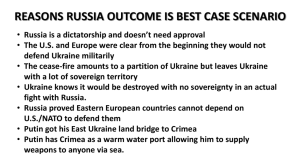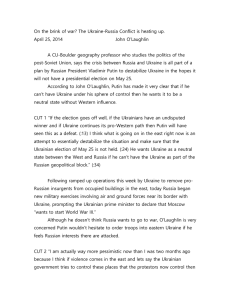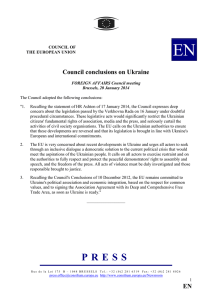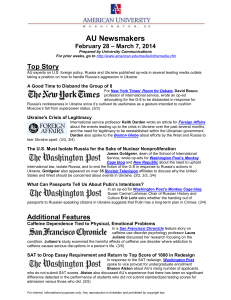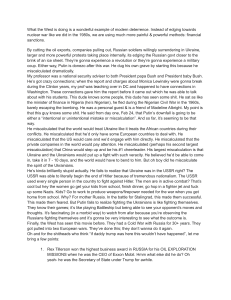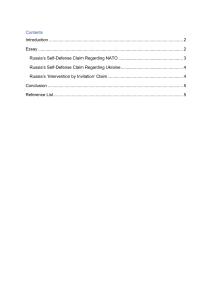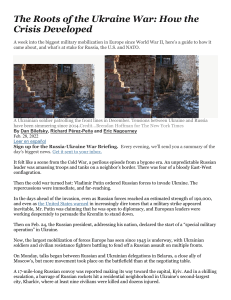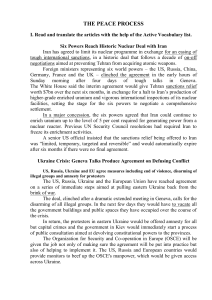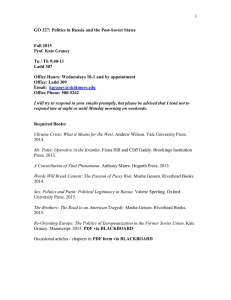Document 13157262
advertisement
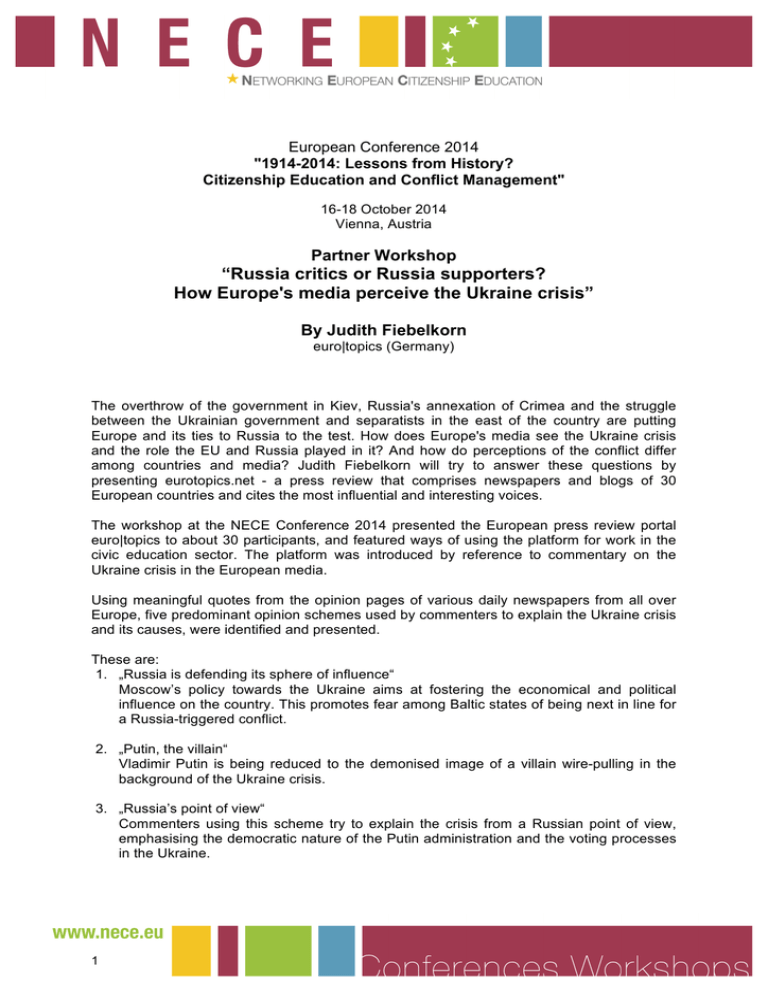
European Conference 2014 "1914-2014: Lessons from History? Citizenship Education and Conflict Management" 16-18 October 2014 Vienna, Austria Partner Workshop “Russia critics or Russia supporters? How Europe's media perceive the Ukraine crisis” By Judith Fiebelkorn euro|topics (Germany) The overthrow of the government in Kiev, Russia's annexation of Crimea and the struggle between the Ukrainian government and separatists in the east of the country are putting Europe and its ties to Russia to the test. How does Europe's media see the Ukraine crisis and the role the EU and Russia played in it? And how do perceptions of the conflict differ among countries and media? Judith Fiebelkorn will try to answer these questions by presenting eurotopics.net - a press review that comprises newspapers and blogs of 30 European countries and cites the most influential and interesting voices. The workshop at the NECE Conference 2014 presented the European press review portal euro|topics to about 30 participants, and featured ways of using the platform for work in the civic education sector. The platform was introduced by reference to commentary on the Ukraine crisis in the European media. Using meaningful quotes from the opinion pages of various daily newspapers from all over Europe, five predominant opinion schemes used by commenters to explain the Ukraine crisis and its causes, were identified and presented. These are: 1. „Russia is defending its sphere of influence“ Moscow’s policy towards the Ukraine aims at fostering the economical and political influence on the country. This promotes fear among Baltic states of being next in line for a Russia-triggered conflict. 2. „Putin, the villain“ Vladimir Putin is being reduced to the demonised image of a villain wire-pulling in the background of the Ukraine crisis. 3. „Russia’s point of view“ Commenters using this scheme try to explain the crisis from a Russian point of view, emphasising the democratic nature of the Putin administration and the voting processes in the Ukraine. 1 4. „The naivety of the West“ Western politicians trust in Putin being part of a diplomatic solution to the conflict, without noticing that he is blocking more and more diplomatic alternatives. 5. „The West is extending its sphere of influence“ The conflict was fuelled by the European (and American) attempt to extend their sphere of influence up to Russia’s boarders by embracing the Ukraine as a cooperation partner for the EU. The presentation was followed by a debate among the participants, in which they expressed their impressions of the media coverage on the Ukraine crisis in their countries. In this context, challenges for civic education regarding to the use of media were discussed. One focus point of the discussion was the German coverage of the crisis and the controversy about the apology of the German state television station ARD for showing a documentary on the Eastern Ukraine. 2


